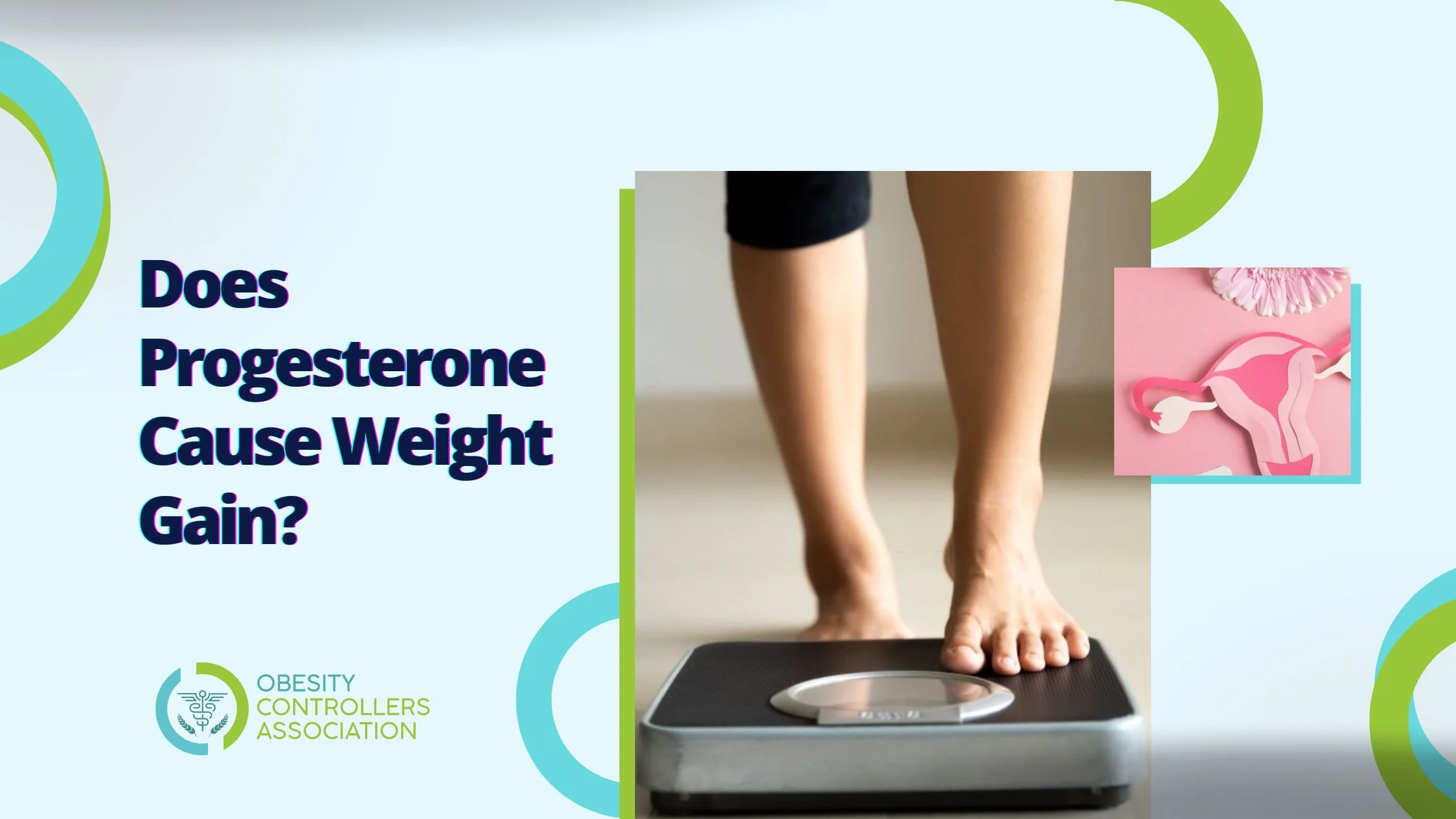Does Progesterone Cause Weight Gain? -All You Need To Know!

Unhealthy eating patterns are not the only reason that leads to weight gain. Several other factors can lead to weight gain. One important reason for weight gain in women can be hormonal imbalance.
A wide variety of hormones play a crucial role in affecting our weight. An important one among them is progesterone. Read on to know how progesterone affects the weight gain process in your body.
What Is Progesterone?
Also known as ‘pregnancy hormones’, progesterone is a natural hormone secreted by the ovaries in the female reproductive system. The endocrine gland that produces the hormone is called the corpus luteum. Progesterone plays a crucial role in women’s pregnancy.

The hormone works by reducing muscle contractions inside the uterus, which might reject an egg. In pregnant women, the progesterone hormone helps to create a nourishing environment for the baby. The levels of this increase between the 9th and 32nd weeks of pregnancy.
Progesterone: Functions
Progesterone plays different functions in your body. It has a major role during the luteal phase, the second half of a menstrual cycle. Some of the other functions delivered by this hormone are listed below:
- Breast development
One of the key roles played by progesterone is during the breast development stage in women. It can aid in lobuloalveolar maturation, which is a small sac found inside the mammary glands. During pregnancy, this hormone can stimulate milk production and aid in breastfeeding.
- Pregnancy
No doubt why it is called pregnancy hormones! It thickens the uterine lining, making it an ideal space for the egg to grow. Progesterone levels can be high during pregnancy. It can also prevent uterine contractions, thereby reducing the chance of preterm labor. Low levels of progesterone can make it difficult to conceive and might put you at risk of miscarriage.
- Menstrual cycle
Progesterone plays a crucial role in preparing your uterus for pregnancy. It stimulates glandular development and provides a nourishing environment for egg implantation. If an egg doesn’t get fertilized, progesterone levels drop, and the corpus luteum breaks. This starts at the beginning of a menstrual period.
What is the normal progesterone level?
The normal levels of progesterone in women can vary based on the fertility journey. It can range from <=0.20ng/mL to high as 200+ng/mL. The phases such as ovulation, menopause, perimenopause, etc, can have an impact on progesterone levels.
Here is a progesterone levels chart for your understanding:
| During ovulation | 1.8-24 ng/mL |
| During perimenopause | 0.89ng/mL-24ng/mL |
| During menopause and post-menopause | <=0.20ng/mL |
Progesterone And Weight Gain
Being an important hormone in females, progesterone plays a role in all most all the stages of the fertility cycle. The areas that this hormone has an impact on are usually sex and fertility. The imbalance in the levels of this hormone can have effects on your overall health and well-being.
Studies show that even though an imbalance in progesterone can cause weight gain, it is not the sole mistake of this hormone. Other hormones such as estrogen can also play a role in affecting your body weight.

Estrogen and progesterone balance each other and works together to maintain a normal weight. Being a growth hormone, estrogen increases the size of your cells and accelerates the storing of energy as fat.
While progesterone puts a hold on estrogen activity by aiding in fat metabolism and decreasing swelling. The balance in these hormonal activities maintains a healthy weight.
When this balance is disrupted, you might gain some weight. Below are some reasons how progesterone levels can impact weight gain in your body.
- Progesterone levels are too high
When progesterone levels are too high in your blood, it can lead to weight gain. As the hormone can interact with insulin, higher levels of it can affect insulin also. During pregnancy, this can be normal as higher levels of progesterone can help nutrients to be delivered to the fetus.
But in the absence of pregnancy, increased levels of progesterone can raise insulin levels, which will accelerate fat deposition in your body. This can lead to weight gain as a result.
- Progesterone levels are too low
Lower levels of progesterone can impact insulin sensitivity and also disbalance estrogen levels. Also, progesterone plays a role in affecting the thyroid and metabolism.
So when your body is experiencing lower levels of progesterone, it can slow down your metabolism. This will lead to weight gain as a result.
Ways To Prevent Hormonal Weight Gain
An imbalance in specific hormones in your body can lead to weight gain. In men, higher levels of cortisol can lead to weight accumulation. While in women, an imbalance in the levels of estrogen can disrupt metabolism and thereby lead to weight gain.
Many conditions can cause hormonal weight gain. Some of them are Insulin resistance, thyroid hormone deficiency, PCOS (Polycystic ovary syndrome), higher levels of cortisol, metabolic syndrome, etc.
There are many ways you can adopt to prevent hormonal imbalance and weight gain due to it. Some of these are listed below:
- Try to maintain a healthy weight: Balancing a healthy weight is mandatory if you want to prevent hormonal weight gain. Engage in activities that can balance your weight.
- Consume a healthy and nourishing diet: Follow a diet that is filled with whole grains and vegetables. Consume more fruits and nuts.
- Get physically active: Exercise is an excellent medicine to prevent hormonal weight gain. Engage in any kind of physical activity for at least 20 minutes a day.
- Control your stress levels: Like physical health, your mental health is also important. Practice activities such as meditation to keep your stress levels away.
- Sleep well: Sleep is an important component in maintaining a healthy weight. Get at least 8-9 hours of sleep every day.
The Bottom Line
Progesterone plays a wide variety of roles in the human body. In women, it has major functions in pregnancy and menstruation. Progesterone and estrogen levels in women can have a major impact on their weight.
Too much progesterone and too little of it can accelerate the weight gain process. One can opt for some healthy methods to beat the weight gain from hormonal imbalance. Following a healthy diet and consistent exercise patterns are crucial in resolving weight gain due to hormonal imbalance.
Also read: Menopause Weight Gain -The Reason Behind This
FAQs
Yes. Sex hormones such as progesterone can play a role in increasing your appetite.
Some of the major symptoms of high progesterone include bloating, fatigue, water retention, weight changes, etc.
Progesterone cannot directly cause belly fat. But weight gain is one of its side effects; it can lead to belly fat.
Yes. During and after menopause, progesterone levels can play a role in aiding in weight gain.
Yes. The higher the progesterone levels in your body, the more weight you gain during pregnancy.





